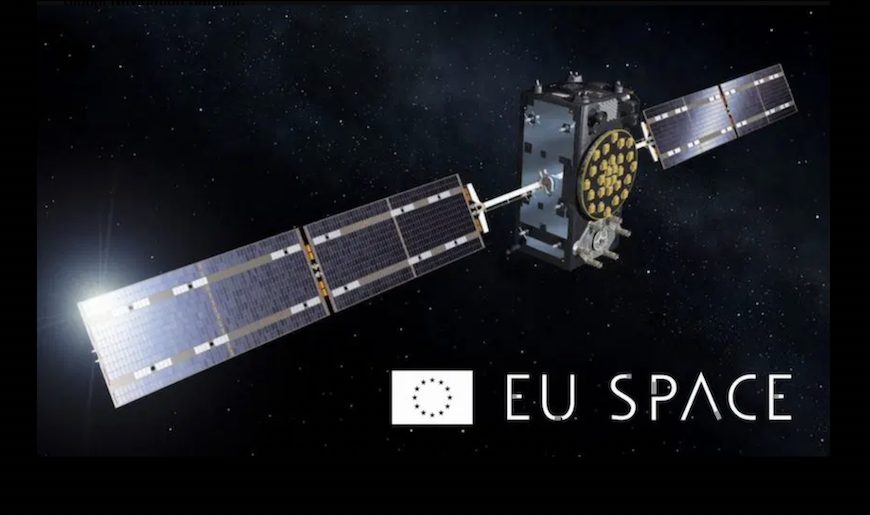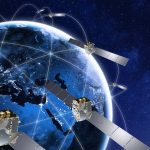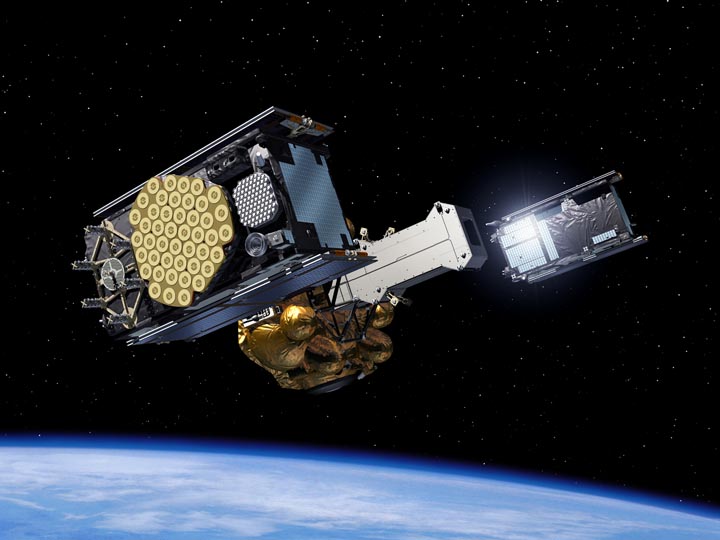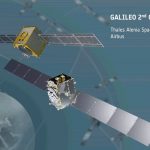The European Commission awarded two contracts for 12 satellites — 6 satellites each — for a total of EUR €1.47 billion to ThalesAleniaSpace (Italy) and Airbus Defence & Space (Germany) following an “open competition.” OHB System AG, the maker of 38 Galileo satellites to date, was shut out.
The first 2nd generation satellites are scheduled to orbit orbit by the end of 2024, carrying new technologies such as digitally configurable antennas; inter-satellite links for ranging, mission dissemination, command and control; new atomic clock technologies; and use of full electric propulsion systems. Altogether, these are foreseen to improve Galileo’s accuracy as well as the robustness and resilience of its signal, key to security and military usage.
ThalesAlenia and Airbus dominate the European industrial aerospace segment; they were active participants during the extended Public-Private Partnership phase of Galileo, which eventually came to naught and launched zero satellites. The smaller OHB System then proved itself nimble, innovative and capable of meeting short timelines. The company won successive contracts to build the first in-orbit validation satellite to secure essential frequencies, and then the first 38 satellites, 26 now in orbit, of the European constellation. Perhaps to the chagrin of the European aerospace establishment and the governments to whose economies the large companies are so vital, who can now claim retribution. The payloads for the OHB satellites were built by Surrey Satellite Technology Ltd. of the UK, which has now been frozen out of Galileo by the Brexit settlement.
The Run-Up to January’s Announcement
In May 2018, the Commission launched the tender procedure to procure a first batch of 12 second-generation satellites through a competitive dialogue, with the objective of signing two contracts (double source) of 6 satellites each. The tender procedure was run by the European Space Agency (ESA) by delegation. After 2 months of detailed technical and financial evaluation of the industrial offers, ESA recommended to the Commission to proceed with ThalesAleniaSpace and Airbus Defence & Space that represent the best technical and financial offers.
“We want an ultra-flexible and mostly digital design,” said Paul Verhoef, ESA Director of Navigation.
In August 2020, following almost 24 months of a competitive dialogue procedure with the three large system integrators involved, ESA issued a so-called ‘Best and Final Offer’ invitation to tender on 11 August to Airbus, OHB System AG and Thales Alenia Space.
Under the plan, each of the two selectees will build two satellites for development purposes, with options for up to 12 satellites in total.
The first satellites of the new constellation are foreseen for launch before the end of 2024, together with updated ground systems to support the new satellites.
The required navigation signal-transmitting antennas are to have a very advanced design. ESA has conducted extensive research and development and built such an antenna as a proof of concept at the Agency’s ESTEC technology centre in the Netherlands to ensure feasibility. This know-how was shared with the three bidders.
“Each bidder must determine how they can best manufacture the navigation antenna, and we’ll have to see how each proposes to do it. Also, requiring a fully flexible payload is quite a challenge. No such navigation spacecraft of that type have flown yet,” said Verhoef last year.
Based on constant measurements of the performance of the current OHB-built satellites in orbit, their predicted lifetime has increased. So, together with a slight spreading out the launches of the so-called ‘Batch 3’ satellites, which are currently under construction by OHB and in testing at ESTEC, this will ensure service continuity before the new, advanced capabilities of Galileo come into operation.
These second generation satellites will gradually take over from the current first generation satellites in the provision of Galileo services, and will therefore at a future date constitute a complete constellation plus the necessary in-orbit spares.
ESA serves as the design, development and procurement agent for Galileo satellites on behalf of the European Commission, which funds the system overall.






